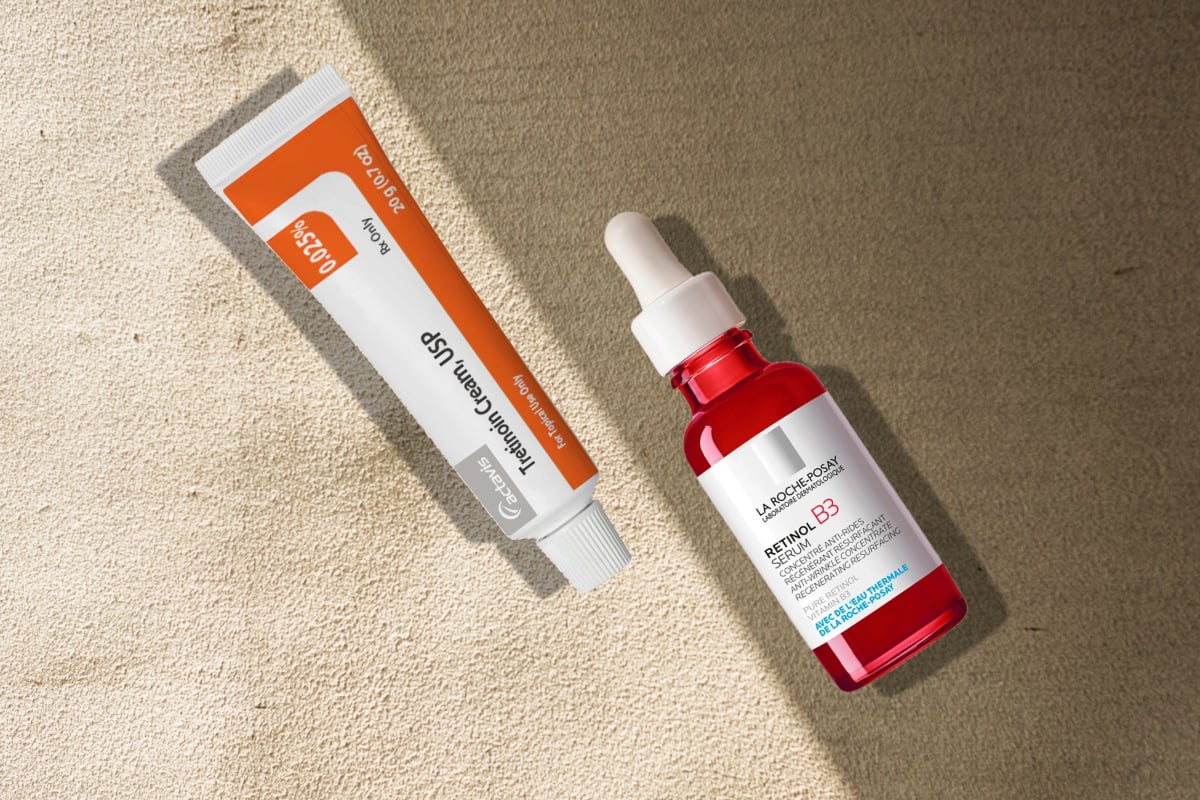Your skin barrier (the surface layer of your skin) is a complex mechanism. It protects you from harmful invaders and maintains moisture in your skin. But sometimes, this barrier needs some extra TLC. Things like harsh chemicals, too much sun, or not enough nutrients can throw it off balance. When this happens, your skin is more open to getting hurt or infected.[1] The good news is that you can restore the natural function of this barrier by applying products rich in restorative ingredients. Below, we discuss the most effective skin barrier repair ingredients that are actually backed by science.
What are skin barrier repair ingredients?
Imagine our skin as a castle. The skin barrier is the walls of this castle that fight off invaders like dirt, bacteria, and pollutants. These walls are made of bricks and mortar. In our skin’s case, the bricks are skin cells, and the mortar is a mix of oils, fats, and natural lipids.
Skin barrier repair ingredients work by filling the cracks and holes in this wall. They do that by replenishing the mortar (the lipids and fats naturally found in the barrier) and restoring the bricks (the skin cells).
What are the best ingredients to repair a damaged skin barrier?
Ceramides, fatty acids, cholesterol, vitamin C, zinc oxide, colloidal oatmeal, hyaluronic acid, and some plant oils have all been proven to restore a healthy skin barrier. They have different mechanisms to do this.
Ceramides, fatty acids, and cholesterol
The best ingredients to repair a damaged skin barrier are none other than those that form it: ceramides, fatty acids, and cholesterol.
These are waxy lipid molecules found in high concentrations within the cell membrane, comprising about 90% of the protective barrier.[2] When you apply them to your skin, they immediately start to rebuild the protective barrier and fill the cracks between the cells.
For reference, a 2020 study shows that a cream containing ceramides, cholesterol, and fatty acids (linoleic and linolenic acids) can drastically increase skin hydration and relieve redness and itchiness.[3]
When you’re dealing with a compromised skin barrier, it’s best to apply a nourishing cream with all these ingredients—like SkinCeuticals Triple Lipid Restore 2:4:2. You’ll start to see relief soon after.
Vitamin C
There’s so much to talk about vitamin C. This vital antioxidant wears a lot of different hats. It has anti-aging and brightening effects, activates enzymes responsible for tissue regeneration, reduces inflammation, and heals cuts, burns, and other skin injuries faster. But do you know that vitamin C is also required for the formation of the skin barrier? Research is showing that vitamin C is right at the heart of making not just ceramides but also fatty acids and cholesterol.[4] Without vitamin C, our skin will not be able to form or regenerate the lipid layer necessary for a healthy skin barrier.
Since our bodies can’t synthesize vitamin C, you must use topical products or oral supplements to ensure your vitamin C intake. For the best results, use stable forms of vitamin C in concentrations of at least 10%.
Niacinamide
Niacinamide is another ingredient that can repair your skin barrier. It’s the kind that can make your skin produce more ceramides and fatty acids, which you already know are the backbone of a strong skin.[5]
Zinc oxide
Zinc oxide is more than just a sunscreen ingredient. It can make your skin heal faster and better. Zinc oxide has anti-inflammatory, antioxidant, and calming effects and adds a protective barrier to the skin. In a recent study, a facial mask containing a zinc oxide-based cream was found to be very effective in restoring a damaged skin barrier after laser treatment.[6]
You can look for products that contain zinc oxide as an active ingredient. You can also make your own facial mask with zinc oxide powder and water. Just mix them together until you get a smooth paste and apply it on your face for 15 minutes. Then rinse it off with warm water and pat your skin dry. You can do this once or twice a week to see the results.
Natural moisturizing factor (NMF)
Your skin has a natural system to hydrate itself, and this is natural moisturizing factor (NMF). This system is made of hyaluronic acid, betaine, glycerin, and amino acids, which are all molecules naturally found in the skin that attract and retain moisture. If your skin is dehydrated, it could be a sign of a damaged skin barrier. In this case, applying these ingredients can help restore the barrier and reduce dryness.
Colloidal oatmeal
Dermatologists often recommend colloidal oatmeal products for dry and inflamed skin conditions. These will restore the protective barrier by helping your skin make more ceramides, cholesterol, and fatty acids.[7]
Plant oils
Some plant oils have natural barrier-repairing properties. These include sunflower seed oil, coconut oil, argan oil, soybean oil, and jojoba oil.[8] All of these are rich in fatty acids, which regenerate the skin barrier.
Sources
Women’s Concepts uses reliable sources, including dermatologists’ insights, clinical trials, and scientific journals, to find accurate information and support all the facts shared in our articles. All statements and claims have clear references. Read our editorial policy to learn more about our sources of information and our process of researching the content.
- Rosso JD, Zeichner J, Alexis A, Cohen D, Berson D. Understanding the Epidermal Barrier in Healthy and Compromised Skin: Clinically Relevant Information for the Dermatology Practitioner.
- Fujii M. The Pathogenic and Therapeutic Implications of Ceramide Abnormalities in Atopic Dermatitis. Cells. 2021.
- Draelos ZD, Baalbaki NH, Raab S, Colón G. The Effect of a Ceramide-Containing Product on Stratum Corneum Lipid Levels in Dry Legs. J Drugs Dermatol. 2020 Apr 1.
- Ponec M, Weerheim A, Kempenaar J, Mulder A, Gooris GS, Bouwstra J, Mommaas AM. The formation of competent barrier lipids in reconstructed human epidermis requires the presence of vitamin C. J Invest Dermatol. 1997.
- Tanno O, Ota Y, Kitamura N, Katsube T, Inoue S. Nicotinamide increases biosynthesis of ceramides as well as other stratum corneum lipids to improve the epidermal permeability barrier. Br J Dermatol. 2000 Sep;143(3):524-31.
- Park, S.J. and Han, H.S. (2023), Effects of a facial mask containing zinc oxide-based cream on improving post-laser skin care. J Cosmet Dermatol, 22: 3181-3184.
- Ilnytska O, Kaur S, Chon S, Reynertson KA, Nebus J, Garay M, Mahmood K, Southall MD. Colloidal Oatmeal (Avena Sativa) Improves Skin Barrier Through Multi-Therapy Activity. J Drugs Dermatol. 2016 Jun 1;15(6):684-90.
- Lin TK, Zhong L, Santiago JL. Anti-Inflammatory and Skin Barrier Repair Effects of Topical Application of Some Plant Oils. Int J Mol Sci. 2017 Dec 27;19(1):70. doi: 10.3390/ijms19010070.




![Does resveratrol in red wine benefit your skin? While sipping on a glass of red wine can be a delightful experience, relying on it for skincare benefits is not the best idea. Sure, red wine contains a smidge of resveratrol, but let's put things into perspective. The concentration of resveratrol in red wine is relatively low. Red wines, specifically Pinot noir from France, typically contain 0.361-1.972 mg of resveratrol per liter.[8] To hit that reference dose of 500mg of resveratrol, you'd need to drink a lot of wine. We're talking about downing anywhere from 100 to 1000 glasses per day. It's a scene straight out of a wine lover's wildest dreams, but definitely not the healthiest approach. Resveratrol Benefits for Skin](https://womensconcepts.com/wp-content/uploads/2022/03/Resveratrol-Benefits-for-Skin.jpg)
